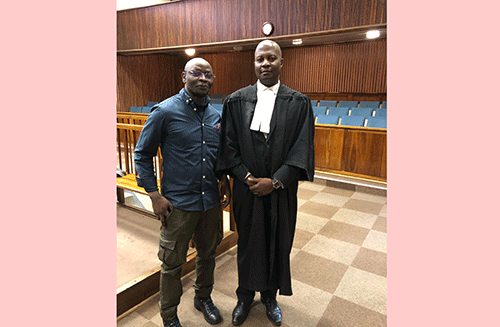A Windhoek resident, who was accused of breaking into a shack in the Goreangab informal settlement and raping two women, was found not guilty last week on all counts by Windhoek High Court Judge Philanda Christiaan.
The judge found that the forensic and medical evidence did not link Moses Salele conclusively to the commission of the offences, and he is entitled to reasonable doubt.
She added that where an alibi is presented, it must be considered in totality to the State’s evidence.
Where it is reasonably possibly true and the State fails to rebut it, an accused is entitled to acquittal.
It was alleged by the State that Salele and an unknown person broke into the shack of the complainants on 5 June 2020, held them at gun and knife- point and raped them alternatively.
The victims may not be named to protect their identities.
The alleged accomplice of Salele was never apprehended.
He denied being the culprit, or that he was in the shack with an accomplice. His reply to the State’s pre-trial memorandum states that he will make use of an alibi defence and call one witness, Ndamona Hijalulwa, to testify in his defence.
Prosecution stated that they have positive identification from the complainants that it was Salele who violated them with the help of an accomplice.
He faced 13 charges, including two counts of housebreaking with intent to rape and rape, seven counts of rape, two counts of pointing a firearm and one count of robbery.
It is alleged by the State that Salele and his accomplice broke into the shack of the complainants. They took turns to rape the complainants. Further, it was claimed they assisted each other in raping the complainants by threatening force and threatening them with a knife and firearm.
It is further alleged that they robbed one of the complainants of a cellphone.
Judge Christiaan said the State’s case rested primarily on the evidence of a single witness, the complainant, who purported to identify the accused through voice recognition and scent.
However, the conditions under which the identification occurred were unreliable, as it was made under duress, in darkness and without visual confirmation.
“The complainant’s voice identification of the accused, although possibly sincere, lacked corroboration, and was approached with the necessary caution,” the judge stressed.
Judge Christiaan added that the defence raised an alibi, which was supported by a witness, asserting that the accused was not present in Windhoek during the commission of the alleged offences.


